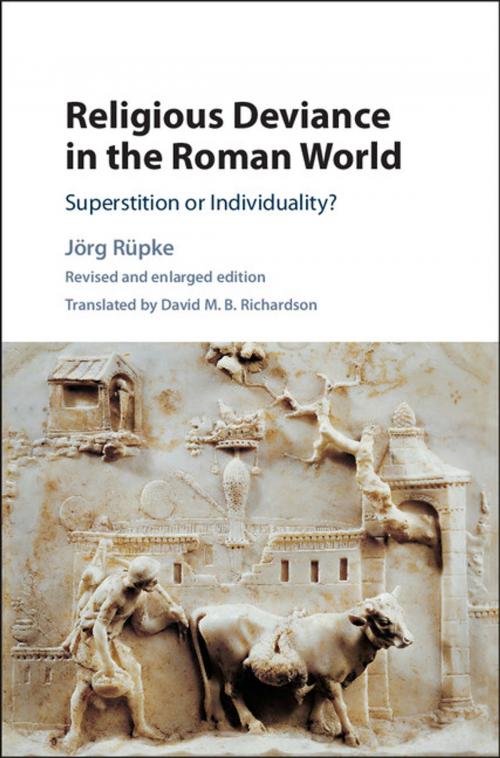Religious Deviance in the Roman World
Superstition or Individuality?
Nonfiction, History, Ancient History, Religion & Spirituality| Author: | Jörg Rüpke | ISBN: | 9781316683248 |
| Publisher: | Cambridge University Press | Publication: | May 16, 2016 |
| Imprint: | Cambridge University Press | Language: | English |
| Author: | Jörg Rüpke |
| ISBN: | 9781316683248 |
| Publisher: | Cambridge University Press |
| Publication: | May 16, 2016 |
| Imprint: | Cambridge University Press |
| Language: | English |
Religious individuality is not restricted to modernity. This book offers a new reading of the ancient sources in order to find indications for the spectrum of religious practices and intensified forms of such practices only occasionally denounced as 'superstition'. Authors from Cicero in the first century BC to the law codes of the fourth century AD share the assumption that authentic and binding communication between individuals and gods is possible and widespread, even if problematic in the case of divination or the confrontation with images of the divine. A change in practices and assumptions throughout the imperial period becomes visible. It might be characterised as 'individualisation' and informed the Roman law of religions. The basic constellation - to give freedom of religion and to regulate religion at the same time - resonates even into modern bodies of law and is important for juridical conflicts today.
Religious individuality is not restricted to modernity. This book offers a new reading of the ancient sources in order to find indications for the spectrum of religious practices and intensified forms of such practices only occasionally denounced as 'superstition'. Authors from Cicero in the first century BC to the law codes of the fourth century AD share the assumption that authentic and binding communication between individuals and gods is possible and widespread, even if problematic in the case of divination or the confrontation with images of the divine. A change in practices and assumptions throughout the imperial period becomes visible. It might be characterised as 'individualisation' and informed the Roman law of religions. The basic constellation - to give freedom of religion and to regulate religion at the same time - resonates even into modern bodies of law and is important for juridical conflicts today.















